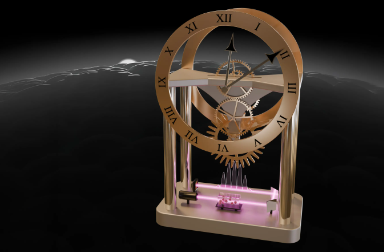World’s First Nuclear Clock
Scientists at JILA, a research institute that’s part of the University of Colorado Boulder and the National Institute of Standards and Technology (NIST), are close to finishing the development of the world’s first nuclear clock. They have figured out all the necessary parts to build this clock, marking an important step forward in timekeeping technology.
What is an Atomic Clock?
An atomic clock is a type of clock that measures time using the natural vibrations of atoms. These vibrations are incredibly regular, making atomic clocks highly accurate. Atomic clocks are essential for things like keeping international time zones in sync, helping GPS systems work, and making sure global financial transactions happen at the right time.
How does a Nuclear Clock Differ?
While atomic clocks rely on the electromagnetic forces in atoms, nuclear clocks measure time by looking at the energy changes inside the nucleus (the center) of an atom. This difference means that nuclear clocks could be even more accurate than atomic clocks because the energy levels in a nucleus are more stable and less affected by outside forces.
Advancements in Precision
Researchers at JILA have made huge improvements in how accurately they can measure time. Their work is a million times more precise than previous efforts. This allows them to detect very tiny changes in the energy of an atom’s nucleus, which is key to making nuclear clocks work properly.
Current Status of the Nuclear Clock
Although the nuclear clock hasn’t been fully built yet, all the necessary parts have been successfully tested in the lab. The scientists are now working on making the measurements even more precise and ensuring that the clock will be as accurate as possible when it’s finally put together.
Once completed, the nuclear clock could make timekeeping technologies simpler. Unlike current atomic clocks, it might not require expensive and complex setups, like ultrahigh vacuum systems or laser cooling. This could make nuclear clocks more practical, accessible, and efficient.
Month: Current Affairs - September, 2024
Category: International / World Current Affairs








